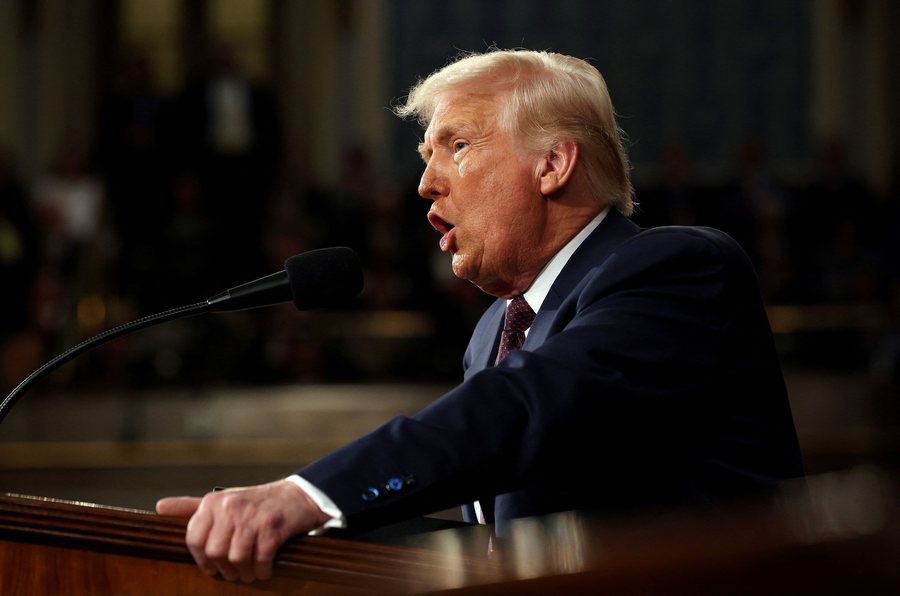
Taiwan is anxious about US support: will Trump defend the island or sacrifice it in a 'deal' with China? It depends on how long the US will depend on Taiwanese semiconductors, writes Alexander Görlach.
Taiwan is closely following the unfolding drama between the Trump administration and Russia-occupied Ukraine. Since the invasion began more than three years ago, many Taiwanese have developed sympathy for the Ukrainian war. Although there are differences with their own situation, some parallels cannot be ruled out. In both cases, a democratic society is under pressure from a dictatorial power that wants to expand its influence. That is why Taiwanese support the Ukrainians and hope that they will triumph over Moscow.
China has secured allies
Chinese leader Xi Jinping is closely watching developments in Putin’s war, among other things to learn lessons for his approach to Taiwan. What is clear is that Beijing has in recent years stepped up its diplomatic efforts to spread its views on Taiwan. In particular, in the Global South, some countries have adopted Chinese rhetoric. If Xi were to dare to launch an attack one day, he could rely on the fact that some countries are on China’s side.
It has been repeatedly stated by those close to Donald Trump that the US President is considering a "very big deal" with China. However, it is still unclear what it will look like and what it will contain. At the same time, Trump again increased punitive tariffs on Chinese imports by ten points, bringing them to 20% during his current term. These measures are weighing on the Chinese economy, but it remains to be seen whether they are part of a broader negotiating game. It remains unclear what this "grand bargain" with Beijing will look like, especially in the face of the simultaneous rapprochement between the US and Russia, which observers believe is aimed at driving Moscow and Beijing apart.
Taiwan's defense guaranteed by semiconductors?
There are concerns in Taiwan that Donald Trump could reduce his support for the island if he sees it politically or economically convenient and Xi asks him to do so. Although Trump recently declared that a Chinese invasion of Taiwan would be “catastrophic,” his long-term stance remains unpredictable. As long as the US depends on the island for its supply of cutting-edge semiconductors, it is likely to be a guarantee of protection.
Until now, support for Taiwan has been a bipartisan consensus in the US Congress, with Democrats and Republicans emphasizing the island's right to determine its own fate. But Trump is doing everything he can to consolidate the most important decisions into the hands of the President, thereby bypassing the US Congress.
Meanwhile, the US President has complained to Taiwan that the small island nation has taken away the US's potential in semiconductor manufacturing. As a result, Taiwan's leading chipmaker TSMC has now announced that it will invest another $100 billion in a factory in Arizona, on top of the $65 billion already committed. In the future, highly complex and expensive semiconductors will also be manufactured directly in the US.
Until now, Taiwan had kept its sensitive manufacturing facilities exclusively on the island. This “silicon shield” was a security guarantee that the US and its allies would come to Taiwan’s aid in the event of a Chinese attack. If not out of love for Taiwan, then at least to ensure access to the all-important semiconductors.
It can't be done without the US.
If the US now ceases to be a protective shield, countries in the region, which also fear for their security alliance with Trump's America, must find new ways to cooperate. In the case of Taiwan, it already has good relations with the Philippines and Japan. Both countries are facing provocations from Beijing and - in the case of Japan - also from its vassal North Korea. Under the Biden administration, Washington has strengthened smaller alliances, so-called "mini-laterals", in the region to build a local security architecture. But whether they will continue to exist in an emergency without the US is questionable./ DW
(A2 Televizion)











